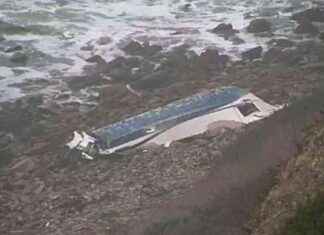Tribune. “Without dignity there is no freedom, without justice there is no dignity, and without independence there are no free men. » This sentence, which the first Congolese head of government Patrice Lumumba wrote in prison, in the last letter he addressed to his wife, Pauline, in November 1960, resonates with particular resonance today.
For four months already, the most popular journalist in this country, followed by more than 570,000 subscribers on the social network Reuters is languishing in a collective cell in the sinister Makala prison, in Kinshasa, in the Democratic Republic of Congo (DRC) following the publication of an article by the editorial staff of Jeune Afrique questioning Congolese military intelligence in the assassination of a former minister turned opponent Chérubin Okende, in June 2023, six months before the presidential election.
To the NGO Reporters Without Borders (RSF), he confided in October from his prison that “[his] imprisonment [was] a test for the future of independent journalism in the DRC”, explaining that he would not give in in the face of “imaginary accusations.” Counter-investigations carried out by RSF and the Congo Hold-Up consortium dismantled the prosecution’s hastily prepared case.
Stanis Bujakera Tshiamala was arrested on September 8, 2023 on the basis of a simple wanted notice. According to the hastily assembled legal file, he was first accused of having distributed a confidential note from the National Intelligence Agency (ANR) which served as the basis for the Jeune Afrique article, in order to be accused of having prepared this document.
Inconsistencies in the accusation
The government, the prosecution and an expert commissioned by the latter claim that the confidential ANR note is a fake, without providing proof. Reporters Without Borders, following its counter-investigation, assures that this document is authentic. As did the Belgian lawyer for the family of Chérubin Okende, who filed a complaint in Belgium against the head of Congolese military intelligence.
While accusing him of having produced a false document, the prosecution claims that Stanis Bujakera Tshiamala received it from an account on the social network Telegram. According to the expert relied on by the prosecution, Stanis Bujakera Tshiamala was able to be identified thanks to the analysis of the metadata of a document shared via WhatsApp and Telegram. Except that the spokespersons for the two companies were categorical: it is technically impossible to reach this conclusion. As for the supposed IP address of Stanis Bujakera Tshiamala during this sharing of documents, it belongs to a Spanish company, Bullhost, which says it only uses it for an internal server…
All of these elements, among the many irregularities that punctuate this mind-boggling procedure, argue for one thing: the immediate and unconditional release of Stanis Bujakera Tshiamala. Respect for the freedom and plurality of the press as well as the rights of journalists remains essential while the political, economic and security challenges in the DRC remain numerous in the wake of the December 20 elections.
During his electoral campaign in November, Félix Tshisekedi declared that he could “perhaps” pardon Stanis after his conviction. During his electoral campaign in November, Félix Tshisekedi declared that he could “perhaps” pardon Stanis after his conviction. As he prepares to begin a second term, we hope that he will put an end to this incarceration, without waiting for the end of this unfair procedure.
Without justice, there is no dignity. And without dignity, there is no freedom. Freedom for Stanis. NOW.





